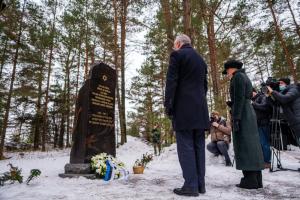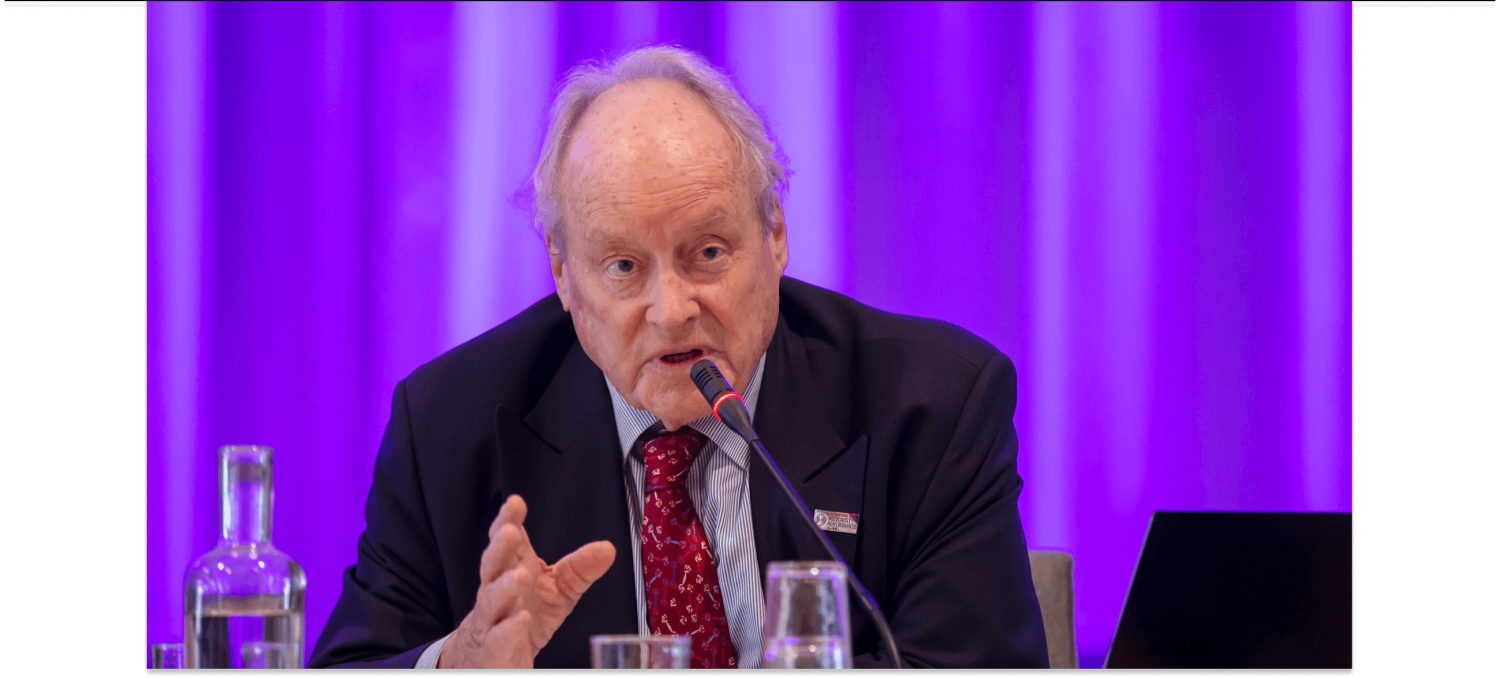
See all countries
- Argentina
- Australia
- Austria
- Belgium
- Bulgaria
- Canada
- Croatia
- Czech Republic
- Denmark
- Estonia
- Finland
- France
- Germany
- Greece
- Hungary
- Ireland
- Israel
- Italy
- Latvia
- Lithuania
- Luxembourg
- Netherlands
- North Macedonia
- Norway
- Poland
- Portugal
- Romania
- Serbia
- Slovakia
- Slovenia
- Spain
- Sweden
- Switzerland
- United Kingdom
- United States of America
Joined the IHRA
2007
International Holocaust Remembrance Day
27 January
Kristi Karelsohn (Ministry of Foreign Affairs) – Head of Delegation
Andres Unga (Ministry of Foreign Affairs) – Deputy Head of Delegation
Gennadi Gramberg (Jewish Community of Estonia) – Museums and Memorials Working Group
Mare Oja (Ministry of Education and Science) – Education Working Group
Toomas Hiio (Estonian Institute of Historical Memory) – Academic Working Group
Meelis Maripuu (Estonian International Commission for the Investigation of Crimes Against Humanity) – Academic Working Group
Anne-Ly Reimaa (Ministry of Culture) – Museums and Memorials Working Group
Since Estonia joined the IHRA, awareness of Holocaust issues in the country has considerably increased and the 27 January commemoration has become an integral annual event. The memorial on the site of the Nazi concentration camp at Klooga has been renovated and an outdoor exhibit now completes the memorial. Lessons on the Holocaust have also become part of Estonian school curricula, both in history and social studies. Thanks to the IHRA network and bilateral interstate agreements, our educators now have direct access to the best practices, study materials and educational resources in the world.
Holocaust education, remembrance, and research in Estonia
All IHRA Member Countries are asked to complete a basic questionnaire with key facts about the state of Holocaust education, remembrance, and research in their country. The answers to the questionnaire, and to the Country Report, if available, are provided by the national delegations, who are also responsible for keeping the information up to date.
Minister of Population Riina Solman at Klooga commemoration event, on Sept. 19, 2019
https://www.holocaustremembrance.com/news-archive/minister-population-attends-commemoration-klooga-estonia
Minister of Education and Science Liina Kersna at International Holocaust Remembrance Day ceremony on Jan. 27, 2022
Minister Liina Kersna: it is our duty to tell schoolchildren about the Holocaust | Estonian Ministry of Education and Research (hm.ee)
In 2021, the Estonian government adopted a Concept for Measures Against Antisemitism. Based on the working definition adopted by the IHRA, the objective of the concept is to create a comprehensive system for measures against antisemitism in a way that corresponds to the Estonian context and allows for the development of clear and unambiguous guidelines for action against antisemitism. It is comprised of three areas: a) ensuring security for Jewish organizations and Jewish people; b) addressing the Holocaust and antisemitism in education; c) stepping up the detection of crimes and misdemeanors motivated by antisemitism.
Annual commemoration ceremonies take place on January 27, in the capital city Tallinn, with centrally organized and local educational events all over the country.
Every year, modest commemoration ceremonies take place on Sept. 4 and 19 at Kalevi-Liiva and Klooga respectively; every five years a more substantial event (exhibition, conference) is organized around Sept. 19.
On August 2, an annual remembrance ceremony dedicated to the genocide of the Roma takes place at Kalevi-Liiva.
No.
No.
No.
No.
There is no museum nor other institution exclusively specializing to the Holocaust.
The Estonian Jewish Museum (EJM) is a private museum and is dedicated to the history of Estonian Jews from the 19th century to present days and shows their contribution to Estonian life. As part of the Museum, there is a Memory Gallery commemorating Estonian Jews, victims of the Holocaust, with a list of their names. There is also information about the declaration of “Judenfrei”.
Databases, testimonies and publications are available on the website of the Museum. EJM is listed in IHRA Overview of Holocaust-related Organizations and in the EHRI Portal. The Head of the EJM is a member of the Estonian national delegation to the IHRA.
In 2013, the Estonian History Museum inaugurated a State-funded open-air exhibition at the site of the former Klooga camp. However, as it is not a museum per se, it is not listed in all databases. The exhibition is available also online, on the special web page, uphold by the Estonian Institute of Historical Memory which deals, among other tasks, with the research concerning the Holocaust.
HOLOCAUST IN OCCUPIED ESTONIA 1941–1944 (nazismvictims.ee)
In addition, the National Archives of Estonia (Rahvusarhiiv) and the Estonian Film Archives (Eesti Filmiarhiiv) are listed in the EHRI portal.
All museums in Estonia, including history museums, are honoring and implementing the ethical code of the International Council of Museums (ICOM). As there are no special holocaust memorial museums in Estonia in the classical sense (i.e. museums at authentic historic sites with thematic collections and programs), implementation of the Memorial Museums Charter, therefore, is not in the order of the day.
All institutions mentioned under point 9 get public funding; the Estonian Jewish Museum does not get its share of public funding directly but via the Jewish Community which is supported by the government.
Statement of the Riigikogu (Estonian Parliament) on the War Crimes and Genocide committed by the Russian Federation in Ukraine, April 21, 2022.







